Korea emerges as growth market, design hub for global brands
Luxury brands opt to directly manage Korean stores; some cement partnerships to expand new product lines
By Sep 01, 2023 (Gmt+09:00)
LG Chem to sell water filter business to Glenwood PE for $692 million


Kyobo Life poised to buy Japan’s SBI Group-owned savings bank


KT&G eyes overseas M&A after rejecting activist fund's offer


StockX in merger talks with Naver’s online reseller Kream


Mirae Asset to be named Korea Post’s core real estate fund operator


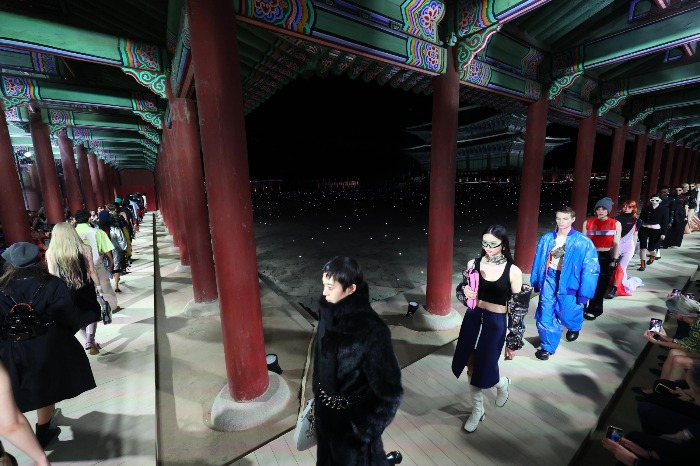
Global fashion and luxury goods brands are opening directly managed stores in South Korea, one of their growth markets, ending their decades-long reliance on domestic distributors.
More than 30 foreign fashion houses, including Celine, Chloe, Givenchy and Moncler, have established subsidiaries in South Korea over the past three years.
Since late last year, Italy’s OTP Group, which owns Maison Margiela, Marni, Zil Sander and Diesel brands, has shifted to directly managing its South Korean operations, after ending contracts with its long-term distributor Shinsegae International Inc. in early 2022.
Such a trend is spreading to casual and street brands, targeting young consumers.
Calvin Klein has canceled its 10-year distribution license with Handsome Corp. to take direct control of domestic sales from the autumn of next year.
Acne Studios, nicknamed MZ Luxury, is also preparing to make direct inroads into South Korea.
The Stockholm-based fashion brand is popular among those in their 20s and 30s. Its clothes and footwear have been distributed through Shinsegae International in South Korea since 2013.
But it has decided to terminate its contract with the Korean retailer next month.
The move comes after the US street fashion house Supreme opened its first store in South Korea in the posh Gangnam area of Seoul last month. South Korea is its seventh global outpost and second in Asia after Japan.
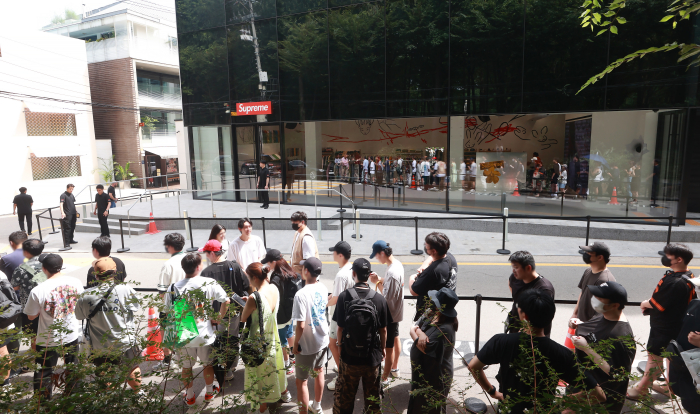
DESIGN HUB
South Korea has rapidly emerged as a major luxury goods market thanks to the increasing purchasing power of millennials and Gen Z, as well as the global fandom of K-pop and K-drama.
According to Euromonitor, a research company, the country ranked fifth in the world’s luxury goods market in terms of sales, which reached $14.1 billion in 2022. That compared with $349.5 billion for global luxury product sales.
Also, South Korea is becoming a design hub for foreign premium brands. Some European and US designer brands have launched new products planned and designed by Korean companies, which performed well in other countries.
G/FORE, a US high-end golf wear company under Richemont, now sells spring and summer outfits designed in South Korea to China and Japan.
G/FORE entered the South Korean market in 2021 through Kolon Industries Inc. The brand, weak in clothing relative to golf gloves and shoes, has sold a license to Kolon for clothing products, under which Kolon plans and designs apparel under the G/FORE brand.
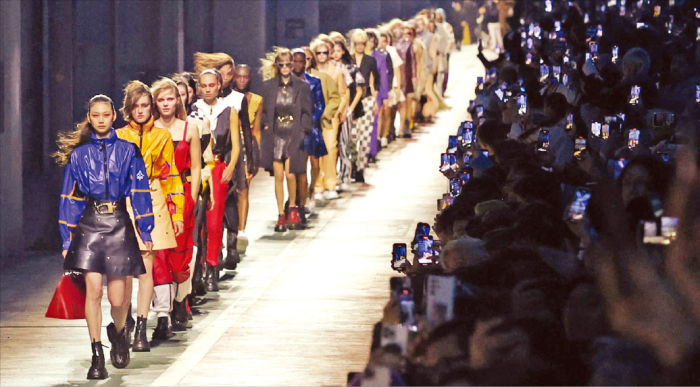
French fashion boutique IRO expanded into the men’s clothing business in partnership with Kolon last year. Another French fashion brand A.P. C. has advanced into the golf apparel market in collaboration with Korean clothes distributor IDLOOK and sells them in Japan and other countries.
New Balance, a US footwear maker, has ventured into the children’s clothing market in partnership with E-LAND, competitive in the children’s clothing market.
INFLUENCER MARKETING
South Korea’s growing influence as a cultural hub is also attributable to foreign fashion houses' aggressive forays into the country.
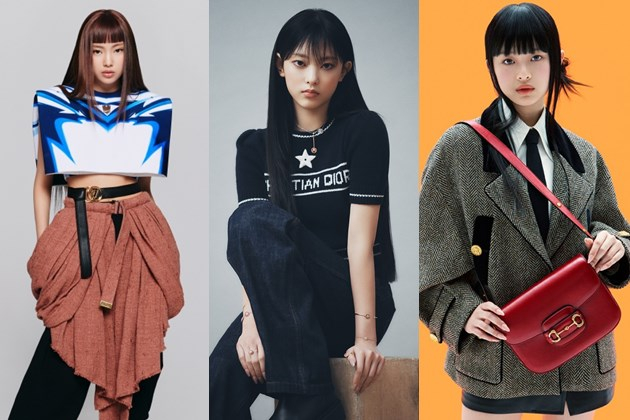
There was not always a success story for their inroads in the country, however.
Givenchy and Dolce & Gabbana have also suffered a decline in sales after they turned to direct control of Korean operations. The same went for Golden Goose and Longchamp.
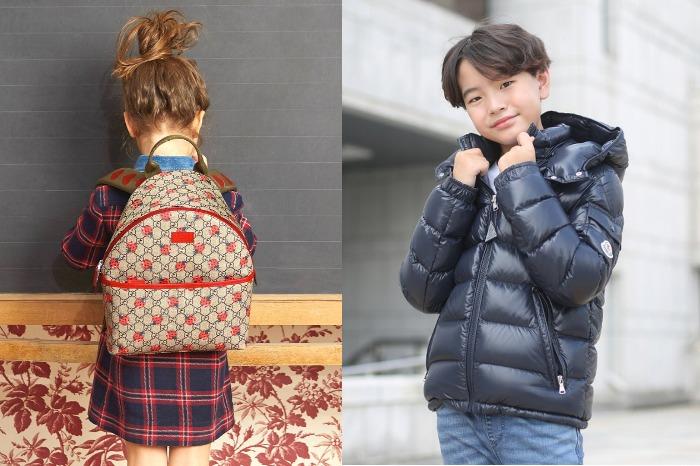
However, they are making big bets on the Asian market, whose love for luxury is expected to usher in the third wave of bling boom.
Foreign fashion boutiques hope to strengthen their brand image through Korean movies and dramas, as well as TV and pop stars.
“Seoul has become a symbolic city of fashion in Asia in just a few years.,” said a fashion industry official.
Earlier this year, Gucci and Louis Vuitton held their first collection shows in Seoul.
Write to Ji-Yoon Yang at yang@hankyung.com
Yeonhee Kim edited this article.
-
 FashionGucci cedes throne to Chanel in Korean used luxury market
FashionGucci cedes throne to Chanel in Korean used luxury marketAug 29, 2023 (Gmt+09:00)
1 Min read -

-
 FashionS.Korea sees fever for luxury goods wane in post-COVID-19 era
FashionS.Korea sees fever for luxury goods wane in post-COVID-19 eraAug 01, 2023 (Gmt+09:00)
1 Min read -
 FashionKoreans maintain designer love with used items, 'quiet luxury'
FashionKoreans maintain designer love with used items, 'quiet luxury'Jul 18, 2023 (Gmt+09:00)
3 Min read -
 RetailTepid luxury sales widen gap between favorite and less-favored brands
RetailTepid luxury sales widen gap between favorite and less-favored brandsJul 17, 2023 (Gmt+09:00)
4 Min read -
 Culture & TrendsNight at Korean royal palace brims with stars and Gucci fashion
Culture & TrendsNight at Korean royal palace brims with stars and Gucci fashionMay 17, 2023 (Gmt+09:00)
3 Min read -
 Culture & TrendsLouis Vuitton to turn bridge over Seoul river into catwalk
Culture & TrendsLouis Vuitton to turn bridge over Seoul river into catwalkApr 26, 2023 (Gmt+09:00)
3 Min read -
 Mergers & AcquisitionsLuxury watchmaker Hublot buys Korean ceramic supplier Ecco
Mergers & AcquisitionsLuxury watchmaker Hublot buys Korean ceramic supplier EccoMar 27, 2023 (Gmt+09:00)
1 Min read -
 The Deep DiveS.Korea’s love of luxury ushers in 3rd wave of bling boom
The Deep DiveS.Korea’s love of luxury ushers in 3rd wave of bling boomFeb 09, 2023 (Gmt+09:00)
4 Min read


